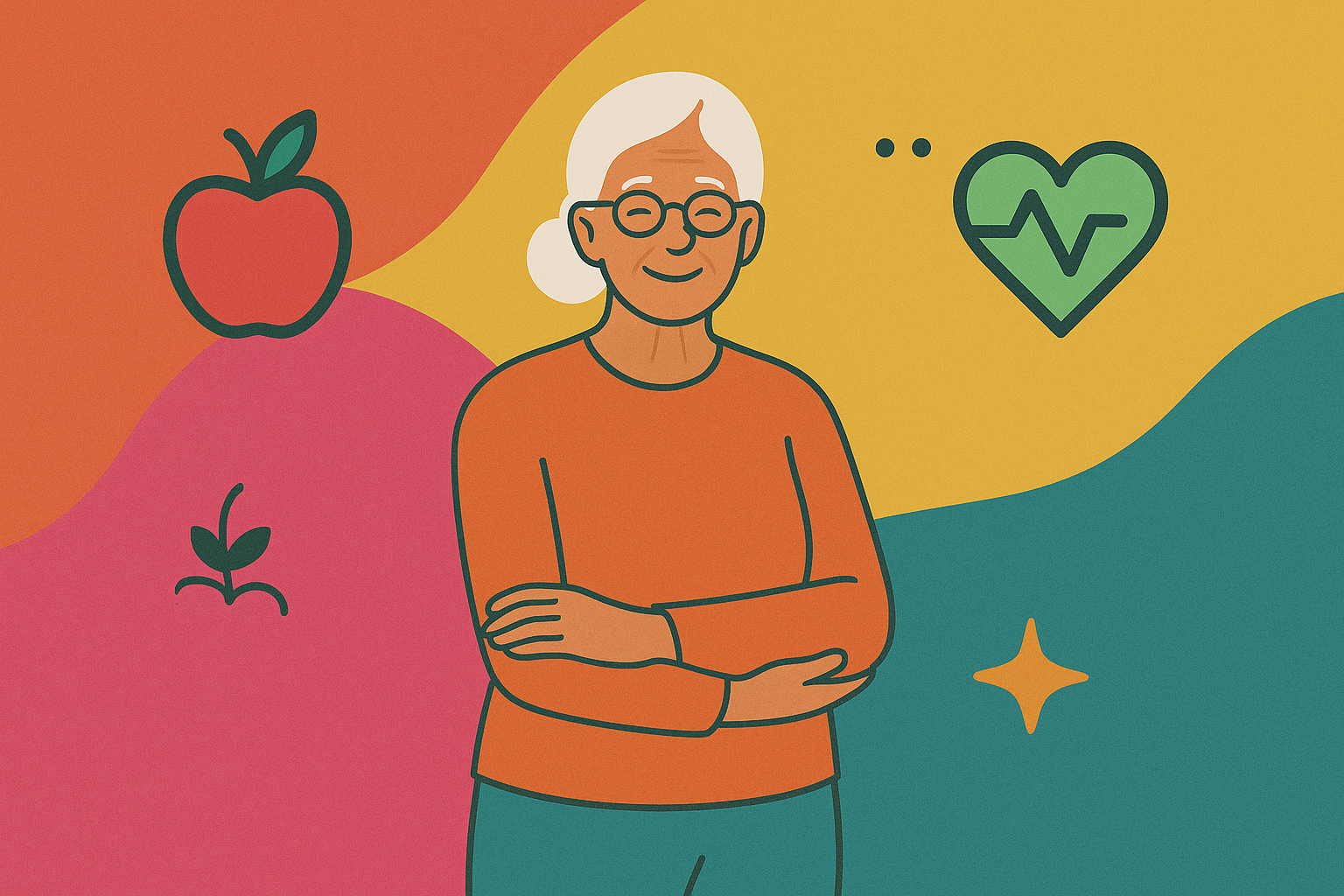As we age, our bodies go through various changes, both physically and mentally. While some of these changes are inevitable, there are certain lifestyle choices we can make to promote healthy aging and increase our chances of living a long and fulfilling life. This article will explore the key factors that contribute to healthy aging and provide practical tips for incorporating these choices into our daily lives.
1. Eating a Balanced Diet
One of the most important factors in healthy aging is maintaining a balanced diet. Consuming a variety of nutrient-rich foods ensures that our bodies receive the necessary vitamins, minerals, and antioxidants to support overall health. Include plenty of fruits, vegetables, whole grains, lean proteins, and healthy fats in your diet.
Eating a diet rich in antioxidants can help reduce the risk of chronic diseases such as heart disease, cancer, and neurodegenerative disorders. Include foods like berries, leafy greens, nuts, and seeds in your meals to boost your antioxidant intake.
Additionally, staying hydrated is crucial for healthy aging. Drink an adequate amount of water throughout the day to keep your body hydrated and support proper bodily functions.
Lastly, be mindful of portion sizes and avoid overeating. As we age, our metabolism slows down, and our calorie needs decrease. Adjust your portion sizes accordingly to maintain a healthy weight.
2. Regular Physical Activity
Engaging in regular physical activity is key to healthy aging. Exercise helps maintain muscle strength, flexibility, and cardiovascular health. Aim for at least 150 minutes of moderate-intensity aerobic activity per week, such as brisk walking, swimming, or cycling.
Incorporate strength training exercises into your routine to build and maintain muscle mass. This can help prevent age-related muscle loss and improve bone density. Include exercises like weightlifting, resistance band workouts, or bodyweight exercises.
Don’t forget about the importance of flexibility and balance exercises. Stretching, yoga, and tai chi can improve flexibility, reduce the risk of falls, and enhance overall mobility.
Remember to consult with your healthcare provider before starting any new exercise program, especially if you have any underlying health conditions.
3. Quality Sleep
Getting sufficient and quality sleep is essential for healthy aging. During sleep, our bodies repair and rejuvenate themselves. Aim for 7-9 hours of uninterrupted sleep each night.
Create a relaxing bedtime routine to signal to your body that it’s time to wind down. Avoid electronic devices, caffeine, and stimulating activities before bed. Ensure your sleep environment is comfortable, cool, and dark.
If you struggle with sleep disturbances, such as insomnia or sleep apnea, consult with a healthcare professional for guidance and potential treatment options.
Quality sleep not only improves cognitive function but also supports immune health, mood regulation, and overall well-being.
4. Stress Management
Chronic stress can have detrimental effects on our health and accelerate the aging process. Finding healthy ways to manage stress is crucial for healthy aging.
Engage in stress-reducing activities such as meditation, deep breathing exercises, yoga, or spending time in nature. Find hobbies or activities that bring you joy and help you relax.
Building a strong support system and maintaining social connections can also help reduce stress levels. Stay connected with friends and family, join community groups, or participate in volunteer work.
If you find it challenging to manage stress on your own, consider seeking professional help from a therapist or counselor.
5. Mental Stimulation
Keeping our minds active and engaged is essential for healthy aging. Engaging in mentally stimulating activities can help preserve cognitive function and reduce the risk of age-related cognitive decline.
Challenge your brain by learning new skills, solving puzzles, reading books, or playing strategy games. Stay curious and open to new experiences.
Social interaction also plays a vital role in maintaining cognitive health. Engage in conversations, participate in group activities, or join clubs that align with your interests.
Additionally, consider incorporating mindfulness practices such as meditation or journaling to improve focus, attention, and overall mental well-being.
6. Regular Health Check-ups
Regular health check-ups are essential for preventive care and early detection of any potential health issues. Schedule regular visits with your healthcare provider to monitor your overall health and address any concerns.
Screenings for conditions such as high blood pressure, diabetes, cholesterol levels, and certain cancers can help detect problems early on when they are easier to manage.
Follow your healthcare provider’s recommendations for immunizations and vaccinations to protect against preventable diseases.
Don’t neglect your eye and dental health. Regular eye exams and dental check-ups are crucial for maintaining optimal vision and oral health.
7. Avoiding Harmful Habits
Certain habits can have a negative impact on our health and accelerate the aging process. It’s important to avoid or minimize these habits for healthy aging.
Avoid smoking and limit alcohol consumption. Smoking is a leading cause of many chronic diseases and can significantly shorten lifespan. Excessive alcohol consumption can damage organs and increase the risk of various health conditions.
Protect your skin from excessive sun exposure by wearing sunscreen, protective clothing, and seeking shade when the sun is strongest. UV rays can cause premature aging of the skin and increase the risk of skin cancer.
Lastly, practice safe driving habits and always wear a seatbelt. Accidents can have severe consequences, especially as we age.
Conclusion
Healthy aging is within our control to a large extent. By making conscious lifestyle choices, such as maintaining a balanced diet, engaging in regular physical activity, getting quality sleep, managing stress, stimulating our minds, and prioritizing regular health check-ups, we can increase our chances of living a long and healthy life.
Remember, it’s never too late to start implementing these choices. Start small, make gradual changes, and celebrate the progress you make towards a healthier and more fulfilling life as you age.
